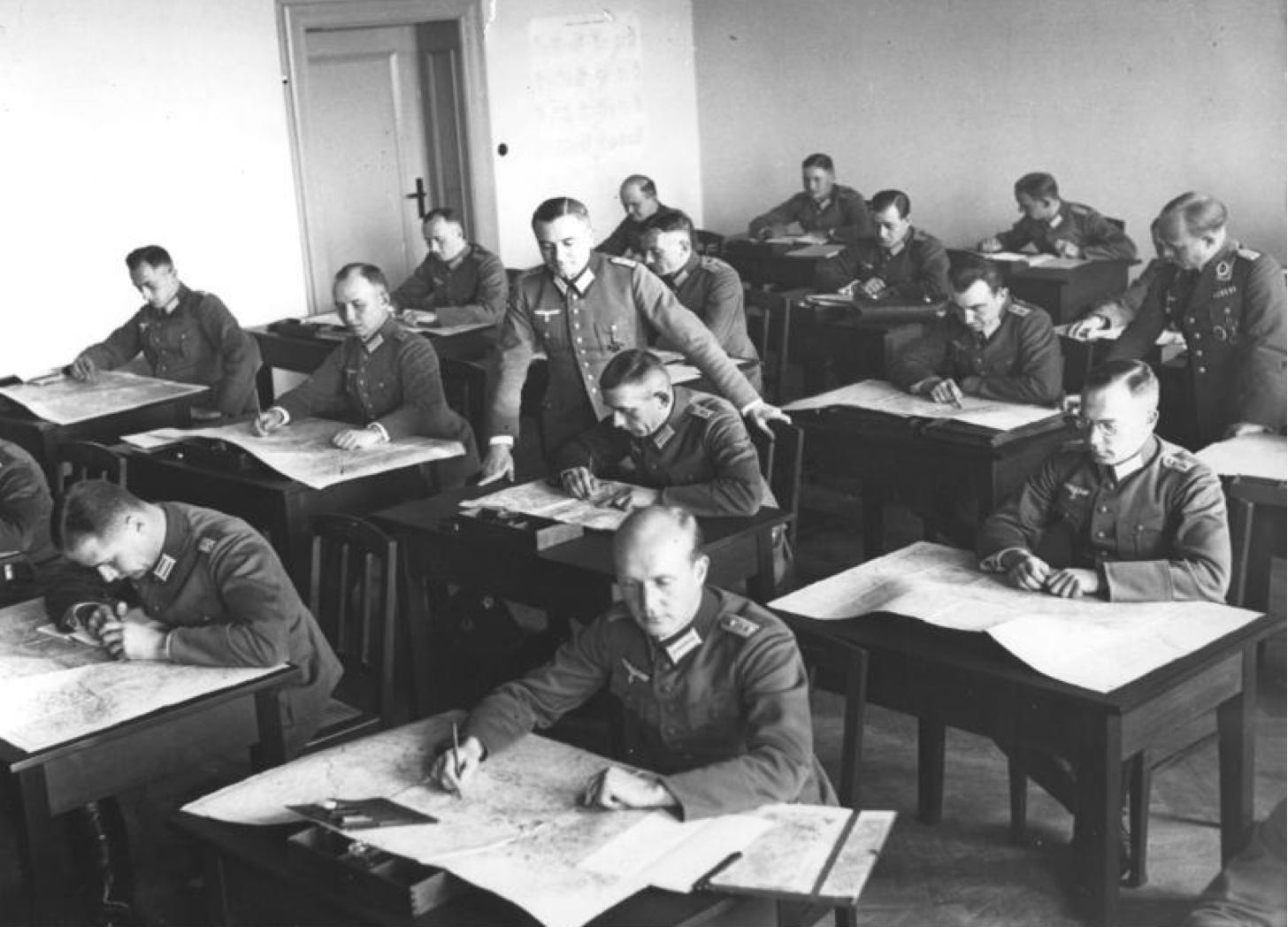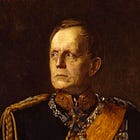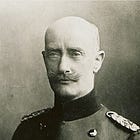
The report on instruction at the Kriegsakademie submitted in 1938 by Albert C. Wedemeyer of the US Army contained a section on the closely-related questions of the selection of students for service on the General Staff and the critique of solutions to tactical problems. The paragraphs that follow come from that section.
At the conclusion of the first school year each tactics instructor (group leader) must submit to the Commander [of the Kriegsakademie] an evaluation report on the work accomplished by officers within his group. Then the study group is assigned a new tactics instructor (group leader) for the second school year. The new instructor does not see these evaluation reports until January, thus having ample time to independently form an opinion of the character and professional ability of his students. He also submits evaluation reports at the end of the school year. Both tactical instructors indicate their selection for the General Staff or for special assignments.
These evaluation reports indicate the students arranged in relative merit; however, there are no numerical or percentage grades assigned. The students are not permitted to see their records and have no way of knowing their position in the class. Class standing does not determine the General Staff recommendations.
The written work accomplished by the students is promptly returned with comments noted in the margin; however, there are no numerical grades indicated. In this connection, the Germans emphasize that it is difficult, [indeed] practically impossible, to assign an arbitrary grade to a tactical problem. They endeavor to emphasize the following points, and if the students have complied with them, they may be assured of good grades, even though their solutions may vary considerably.
Logical Combat thinking.
Good tactical judgement.
Timely and aggressive application of principles.
Seizure and Maintenance of the Initiative.
My group leader explained that he puts a premium on quick logical thinking and decisions, transmitted to the command in clear, concise orders for aggressive, coordinated, action. The mechanics of the maneuvers, ‘right or left flank envelopment [or] penetration’ are treated as less important considerations.
After an officer has been selected … for the General Staff, he generally serves about one year apprenticeship before being assigned. During this year he will be an assistant to General Staff Officers … who closely observe and report on his ability.
Source: The full text of Captain Wedemeyer’s report can be found at the website of the Combined Arms Research Library.
For Further Reading:









The point about not assigning grades to tactics I think is something we need to take a hard look at. Too much of the education part of our training and education pipeline relies on "grades" of one degree or another. And when it's something completely subjective, that is a great way to break someone's spirits
Great post! Anything else related to the either the Prussian or later German General Staff is always most welcome! Thank you for sharing Bruce! 👌